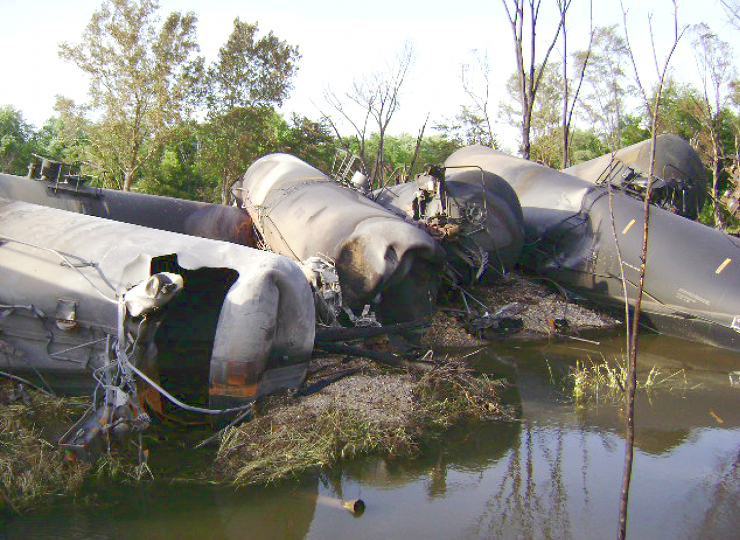
Journalism groups urge Obama to end excessive information controls
by 53 US journalist organizations
Fifty-three journalism and open government groups today called on President Barack Obama – yet again – to stop practices in federal agencies that prevent important information from getting to the public.
The national organizations sent a letter to Obama Monday, August 17, urging changes to policies that constrict information flow to the public, including prohibiting journalists from communicating with staff without going through public information offices, requiring government PIOs to vet interview questions and monitoring interviews between journalists and sources.
This was the second letter the groups sent to the White House regarding government transparency. The first letter, sent July 8, 2014, and a follow-up letter sent August 5, 2014, were met with a non-response response from the White House on August 11, 2014.
“President Obama pledged to lead the most transparent administration in history, but we have yet to see this promise fulfilled,” said David Cuillier, chair of SPJ’s Freedom of Information Committee. “His term may be coming to a close, but it’s not too late to make some real changes in the way officials work with journalists to improve the accuracy and speed in which important information is relayed to the public.
“The United States Freedom of Information Act celebrates its 50th anniversary on July 4, 2016. Now is the perfect time for the President to change the practices of his administration and participate in a public dialogue toward improving the flow of information to the American people,” Cuillier added.
The most recent letter, like prior letters, outlines specific examples of excessive information control, considered by many journalists as a form of censorship:
• Officials blocking reporters’ requests to talk to specific staff people;
• Excessive delays in answering interview requests that stretch past reporters’ deadlines;
• Officials conveying information “on background,” refusing to give reporters what should be public information unless they agree not to say who is speaking.
• Federal agencies blackballing reporters who write critically of them.
Mark Horvit, executive director of Investigative Reporters & Editors, says these types of policies “fundamentally restrict the quality of the information that citizens get about what government agencies are doing. When researchers, administrators and experts cannot speak freely, it becomes impossible to get a full and honest picture of a government program or policy. Such secrecy only fuels distrust and gives members of the public a right to wonder what is being done in their name, with their money,” he said.
Kathryn Foxhall, SPJ FOI Committee member, calls these types of restraints alarming and forms of censorship.
“Surveys of journalists and public information officers demonstrate that the restraints have become pervasive across the country,” Foxhall said. “This information suppression is fraught with danger – especially when it concerns the health and safety of the American people.”
A recent review found that the Centers for Disease Control and Prevention had a culture of unsafe handling of dangerous pathogens and that some staff feared reporting incidents. Last year the Food and Drug Administration announced it had smallpox, among other dangerous materials, in an apparently uninventoried storage for decades in violation of some of the most solemn of international treaties. All the employees working around those situations for years were forbidden to speak to reporters without surveillance by the PIOs, as was all other staff in those agencies, Foxhall explained.
“Some federal officials have said these policies are appropriate because employees can become whistleblowers to report wrongdoings. These whistleblower policies do not work,” she said.
Beth Parke, executive director for the Society of Environmental Journalists, agrees that when interviews are denied or delayed, when environmental test results, enforcement data or scientific findings are suppressed, the public is cheated.
“Readers, viewers and listeners rely on local media. What’s safe to drink when a spill causes a water crisis? What does it mean when oil-by-rail explodes? When press officers block access to people who could answer detailed questions, there are consequences — for public health and for democracy. We have a right to know, and journalists have a job to do,” Parke said.
“Social media messaging is not transparency,” she continued. “Connecting journalists who have questions to people with answers who can speak on the record is transparency. Public access to government science is transparency.”
Never before has such a broad-based coalition of journalism and good-governance organizations spoken out on this issue. The growing number of examples of “mediated access” have not just frustrated journalists but have led to specific cases of important information not reaching the public.
“Transparency can’t just be a buzzword or an applause line,” said Joshua Hatch, Board Vice President and Legal Committee Chair, Online News Association. “It has to be a commitment from the highest levels to every hall of government. Without it, journalists are hamstrung, the public is kept in the dark and democracy suffers.”
While journalists acknowledge and appreciate the assistance PIOs often provide in helping schedule interviews and putting reporters in touch with the appropriate contacts, for example, many say access is all too often hindered instead of helped.
“Throwing PIO roadblocks in the path of journalists contravenes the spirit of open government and free flow of information,” said Bruce D. Brown, executive director, Reporters Committee for Freedom of the Press. “While we appreciate the role of PIO as a facilitator, there is no substitute for reporters speaking directly to sources.”
In addition to the letters, the organizations previously provided the White House with resources on the issue and a list of obstruction examples. They asked the administration to set up an avenue through which such incidents can be reported.








